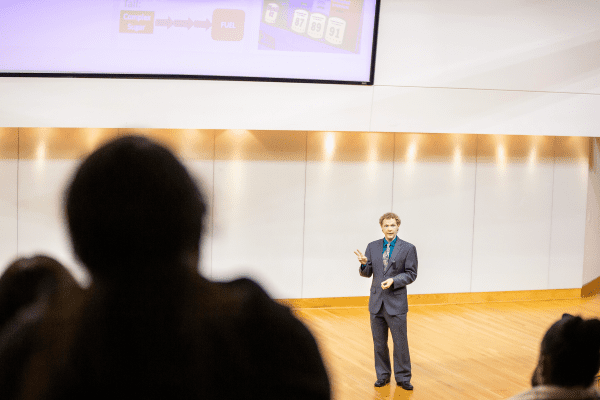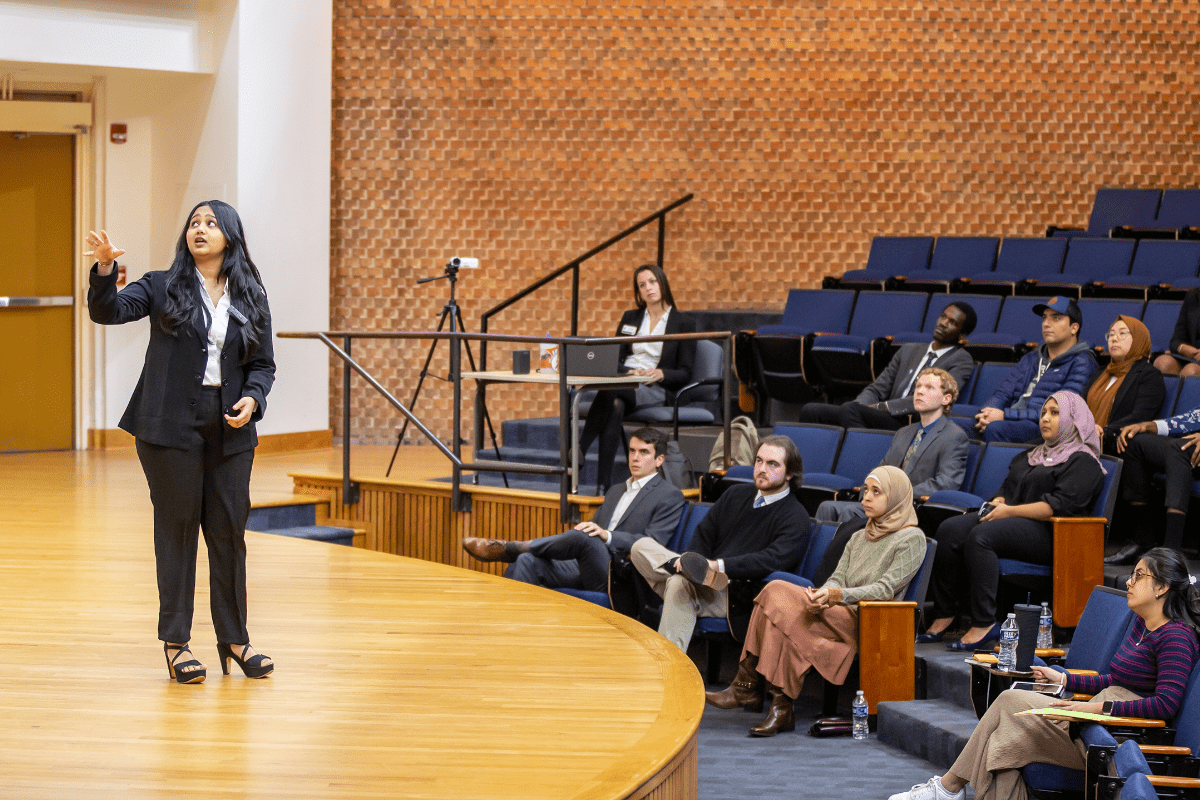UNC Charlotte Receives $500,000 NSF Grant to Revolutionize STEM Graduate Training in Communication

UNC Charlotte was recently awarded a three-year National Science Foundation Innovations in Graduate Education grant of approximately $500,000 to explore best practices in training STEM graduate students to communicate their research to non-specialist audiences.
The project, “Applying Cognitive Theories of Learning to Improve Graduate Training in STEM Communication,” is headed by PI Jill Huerta, Assistant Dean and Director of the Thomas L. Reynolds Center for Graduate Life and Learning (CGLL), with co-PIs Elise Demeter, Director of Academic Research and Assessment, Adam Reitzel, Professor of Biological Sciences, and Aura Young, Associate Director of the Reynolds CGLL.
The grant covers salary, travel and the hiring of experts to build a robust science communication training curriculum that will be delivered to Charlotte graduate students in doctoral and research-based master’s programs during the 2024-25 and 2025-26 academic years. The training will be offered through a series of non-credit-bearing courses during the research phase of the project. The online training curriculum will then be disseminated widely. The project planning phase begins on October 1.

“The ability to explain one’s work to general audiences is critical to our graduate students’ career success. Whether they’re pursuing positions in industry or academia, they’ll need to talk with those outside their fields as they interview for jobs, pitch for funding or collaborate on interdisciplinary teams. In a larger context, finding solutions to the most vexing global challenges we face demands that scientists, business leaders and policymakers understand each other’s work,” explains Jill Huerta. “This initiative will address that need.”
This program builds and expands on training offered in 2020-2021 by the Reynolds CGLL through the STEM Communication Fellows Program, supported by Burroughs Wellcome Fund. The NSF grant proposal will train students in writing about STEM topics for non-scholarly works, speaking to lay audiences, creating effective STEM visuals and videos, fighting science misinformation and communicating well with diverse teammates and stakeholders.
The Innovations in Graduate Education Program funds “potentially transformative approaches to graduate education” with particular emphasis on students in doctoral and research-based master’s programs.
Learn More about the Reynolds Center for Graduate Life & Learning